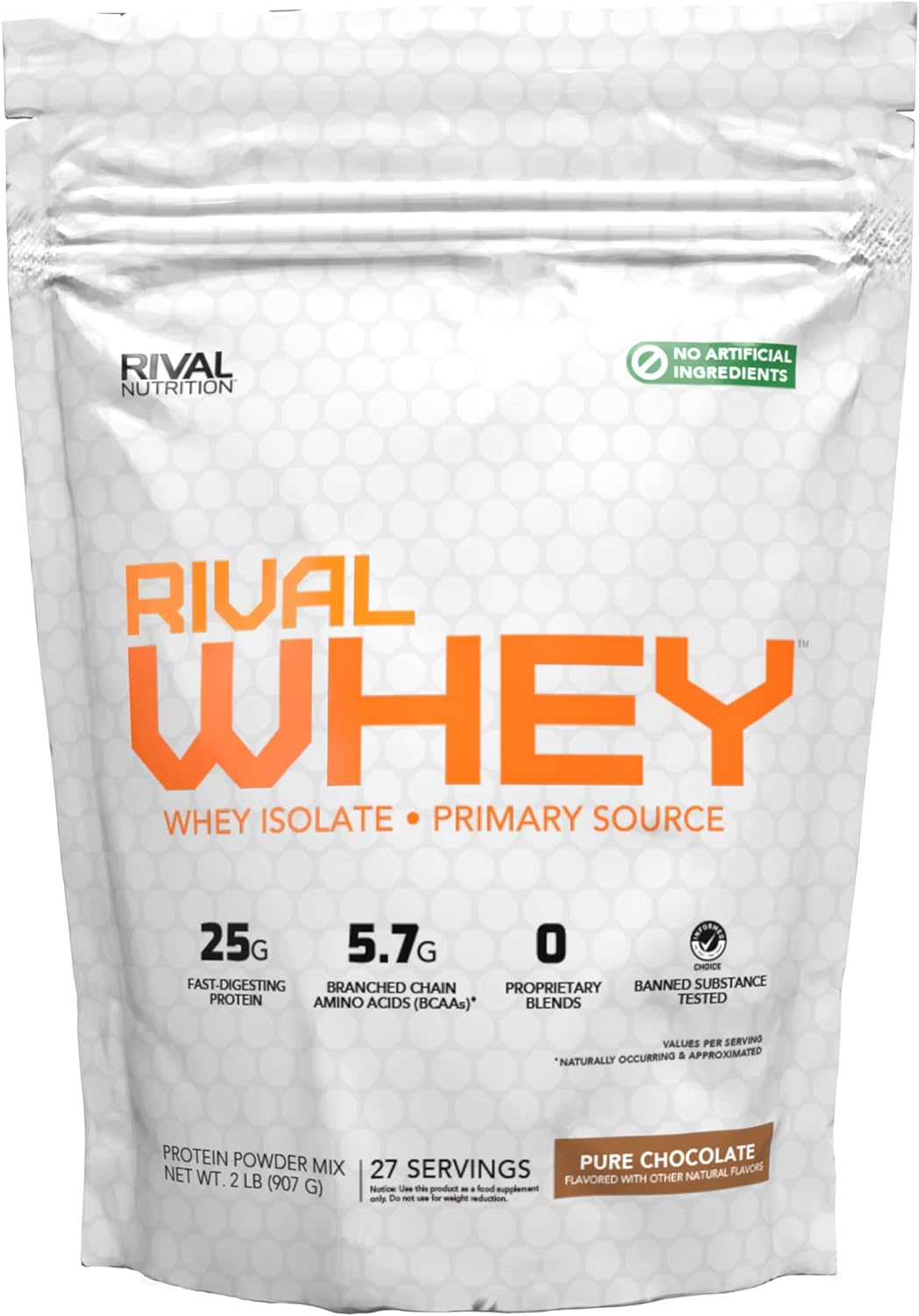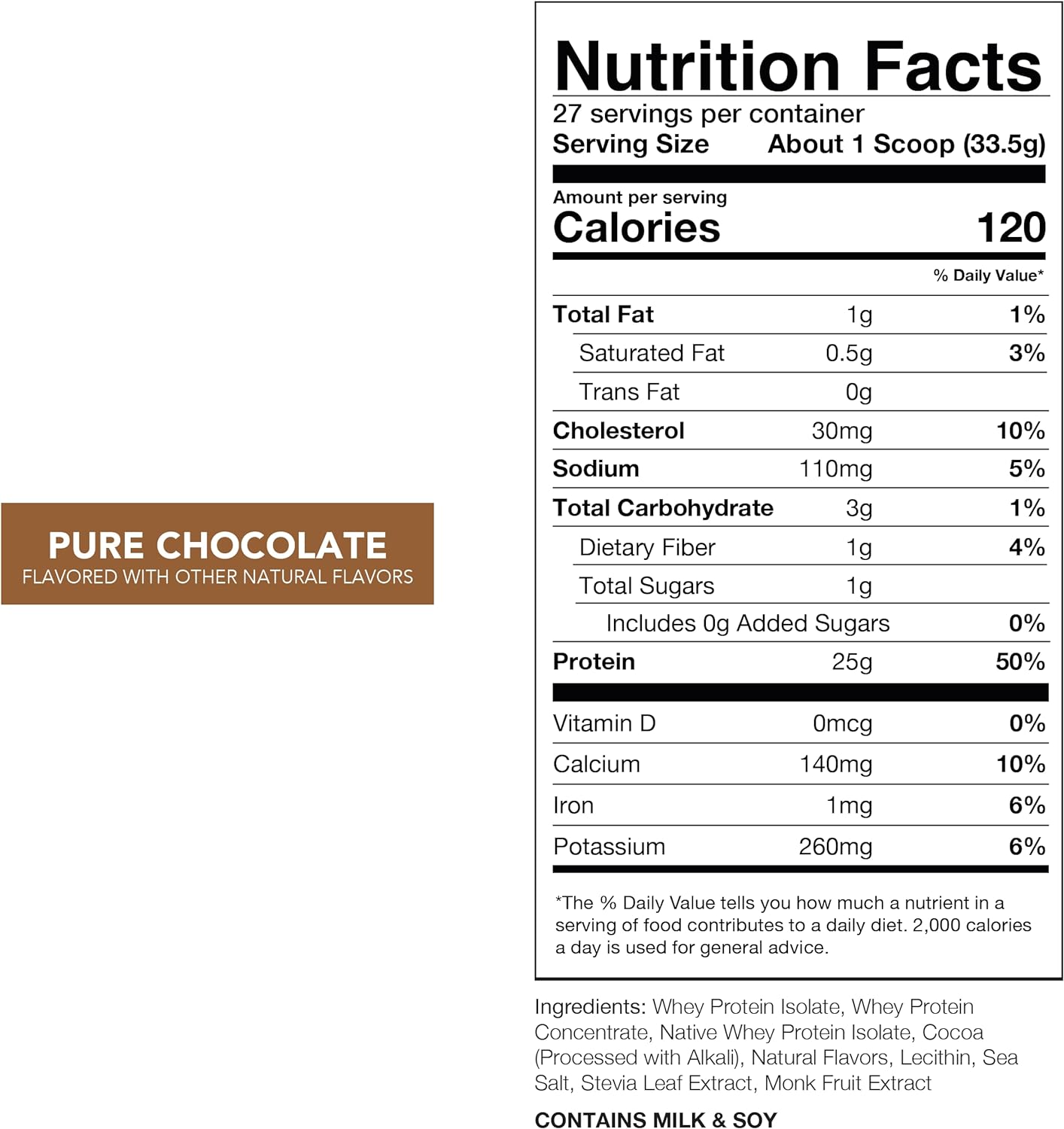Whey Protein Supplements
The amount of protein a person can absorb in one sitting varies based on factors like their individual metabolism, body size, activity level, and overall health.

However, a common guideline is that the body can effectively utilize and absorb about 20 to 25 grams of protein per meal. This means that if you consume a meal containing more than this amount of protein, your body might not be able to fully utilize and absorb all of it at once.
When you consume excess protein that your body can't effectively utilize, a few things can happen:
- Waste: The excess protein that your body can't absorb and utilize for various functions will be excreted through urine. This can put strain on your kidneys, especially if you consistently consume excessive amounts of protein.
- Digestive Discomfort: Consuming too much protein in one sitting might lead to digestive discomfort such as bloating, gas, and indigestion.
- Weight Gain: Excess protein, just like excess calories from any source, can contribute to weight gain if not burned off through physical activity. Protein is not a calorie-free nutrient.
- Nutrient Imbalance: Relying heavily on protein intake at the expense of other nutrients might lead to an imbalance in your overall diet, potentially depriving your body of essential vitamins, minerals, and carbohydrates.
- Long-Term Health Effects: There is some concern that consistently consuming very high amounts of protein, particularly from animal sources, could potentially have negative effects on long-term health, including the risk of certain chronic diseases.
It's important to note that the body's protein needs are spread throughout the day to support various functions like muscle repair, immune function, enzyme production, and more. Instead of trying to consume a large amount of protein in one meal, it's generally recommended to distribute your protein intake evenly across your meals and snacks throughout the day.
Remember that individual protein needs vary based on factors like age, gender, activity level, and fitness goals. If you have specific dietary goals or concerns, it's a good idea to consult with a registered dietitian or a healthcare professional who can provide personalized guidance based on your unique needs.
I eat half a scoop in the morning smoothie and one in the afternoon. That's half of 25 grams.
When searching for a whey protein powder that meets your criteria, here's what you can do:
Read Labels Carefully: Always read the ingredient list on the packaging. Look for products that explicitly state that they are free from sucralose, acesulfame potassium, and maltodextrin. (Some of these might cause cancer or make insulin resistance a problem.)
Check for Natural Sweeteners: Some protein powders use natural sweeteners like stevia, monk fruit extract, or erythritol instead of artificial sweeteners. These options might be more suitable for you if you want to avoid sucralose and acesulfame potassium.
Choose Unflavored or Naturally Flavored: Unflavored whey protein powders are less likely to contain artificial sweeteners or flavors. If you prefer flavored options, choose those that are naturally flavored using real ingredients.
Opt for Isolate or Concentrate: Both whey protein isolate and whey protein concentrate can be found without the additives you mentioned. Whey protein isolate generally has a higher protein content and fewer carbohydrates compared to concentrate.
Research Brands: Look for reputable brands that prioritize quality and transparency. Brands that focus on providing clean and natural products are more likely to offer options that align with your preferences.
Read Reviews: Look for customer reviews and testimonials to gather feedback about the taste, texture, and overall quality of the whey protein products you're considering.
You can Purchase one that I did research on here. It has no maltadextrin, no surcrualose and no acesulfame potassium. This one uses monk fruit and Stevia instead.
Amazing Muscle Link to Clean Protein
Rival WHey 'This one also has very little other ingredients and also uses Stevia. I add this to my coffee with turmeric, cinnamon, and Ginger powders, and coconut milk When I do Keto. Low carbs for this one, and tastes great, no clumping.


